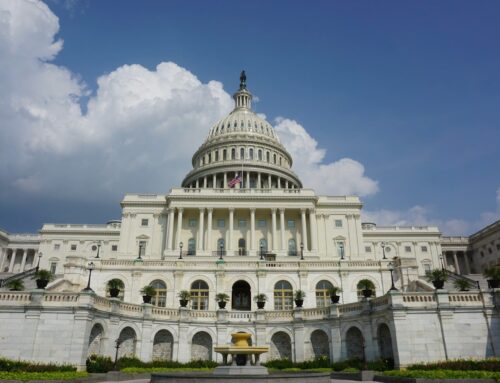Every couple of years lawmakers pass the budgetary equivalent of Spanx. Known as the tax extenders package, this legislation has more (cost) than meets the eye, but it’s safely tucked away from view. Of course, when these “temporary” tax breaks get extended year after year, it adds a lot of bloat to the budget, and eventually their real costs bust out onto the nation’s balance sheet.
Rather than some thoughtful piece of legislation, the tax extender package is a hodge-podge of special interest giveaways. Everybody, from NASCAR track owners, oil and gas companies, rum distillers, and corporations that give their old computer equipment to charity, gets a piece of the pie. Some of these could be argued as legitimate incursions of the government into the marketplace, to encourage certain beneficial behaviors. That is…if they were ever argued. The fact is the extenders package is routinely adopted on auto-pilot, catching a ride on the 2008 bailout and on the extension of the 2001 and 2003 tax cuts , for example.
But last week, right before heading out of town, the Senate Finance Committee did the near unthinkable. They produced for debate an extenders package that – gasp – actually proposed getting rid of a handful. Predictably, the “ Family and Business Tax Cut Certainty Act of 2012 ” generated a firestorm of criticism. So much so that its authors had to pencil a number of them back into the margins of the bill, even before it officially came before the committee. So the owners of motorsports complexes (NASCAR tracks) including Talladega will get to depreciate their investments faster than owners of other types of businesses. Another win for Ricky Bobby ! Still others got reinserted during the debate, or promises were extracted to consider them as the bill moves forward.
Committee members on both sides of the aisle were patting themselves on the back for being so reform-minded, taking the “first step toward the ultimate goal of comprehensive tax reform” and demonstrating that “there is a will to subject long-standing tax policies to the full and much-needed public scrutiny of the American people,” in the words of Finance Committee ranking Republican Orrin Hatch (UT).
Uh, we certainly hope that one afternoon spent passing a bill that kept in place dozens of these special interest tax breaks costing billions of dollars is not the harbinger of things to come in tax reform.
The fact is, the tax code is littered with breaks that in many instances work at cross purposes. Encouraging mass transit while subsidizing parking. Giving renewable energy sources tax breaks to compete with fossil fuels that also get their own highly lucrative tax breaks.
In many cases these tax breaks are costing the Treasury billions of dollars while not even accomplishing their intended effect: rather than making home ownership more affordable and more extensive, the interest deduction on mortgages up to $1.1 million has largely inflated the cost of buying real estate by baking the tax break into the home price. The tax deduction for state sales taxes – which was eliminated in the 1986 tax reform, only to return a few years ago – has no real goal other than being a bald-face subsidy for the handful of states that don’t have an income tax like Florida and Texas.
Committee member Tom Coburn (R-OK) pointed out the obvious : the tax emperor had no clothes (not even underwear): “Nobody wants to make the hard choices around here … [Getting rid of 20 tax breaks is] better than nothing. But it ain’t anywhere close to where we need to be if we’re going to fix this country.”
Senators slapping themselves on the back for dithering around the edges isn’t going to get us real tax reform. We need to wipe the slate clean. Eliminate the special interest breaks, and make a code that is flatter, fairer, and simpler. Taxpayers can afford nothing less.
TCS Quote of the Week:
“The average American out there, by big percentages, wants to cut defense by twice the sequester amount. We need to stop with all the superlatives … be rational about it and involve the American people on it. It’s their country.”
– Rep. Roscoe Bartlett (R-MD) commenting on the automatic budget cuts slated to take effect next year. (POLITICO)










Get Social